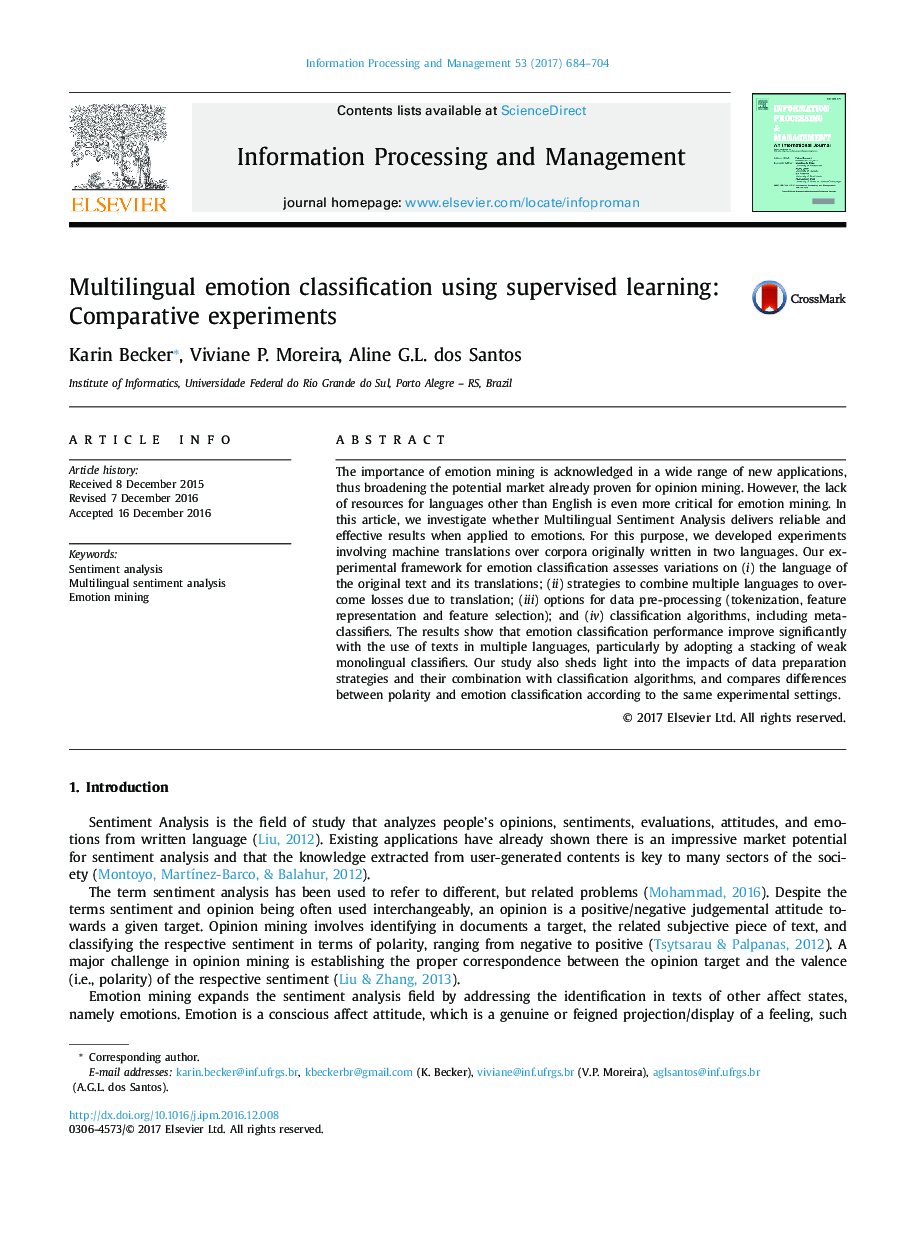| Article ID | Journal | Published Year | Pages | File Type |
|---|---|---|---|---|
| 4966418 | Information Processing & Management | 2017 | 21 Pages |
Abstract
The importance of emotion mining is acknowledged in a wide range of new applications, thus broadening the potential market already proven for opinion mining. However, the lack of resources for languages other than English is even more critical for emotion mining. In this article, we investigate whether Multilingual Sentiment Analysis delivers reliable and effective results when applied to emotions. For this purpose, we developed experiments involving machine translations over corpora originally written in two languages. Our experimental framework for emotion classification assesses variations on (i) the language of the original text and its translations; (ii) strategies to combine multiple languages to overcome losses due to translation; (iii) options for data pre-processing (tokenization, feature representation and feature selection); and (iv) classification algorithms, including meta-classifiers. The results show that emotion classification performance improve significantly with the use of texts in multiple languages, particularly by adopting a stacking of weak monolingual classifiers. Our study also sheds light into the impacts of data preparation strategies and their combination with classification algorithms, and compares differences between polarity and emotion classification according to the same experimental settings.
Keywords
Related Topics
Physical Sciences and Engineering
Computer Science
Computer Science Applications
Authors
Karin Becker, Viviane P. Moreira, Aline G.L. dos Santos,
